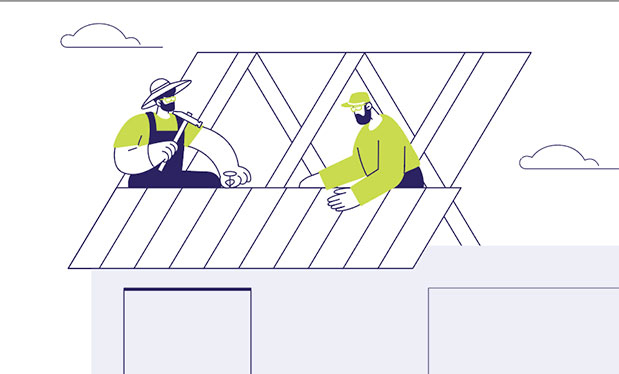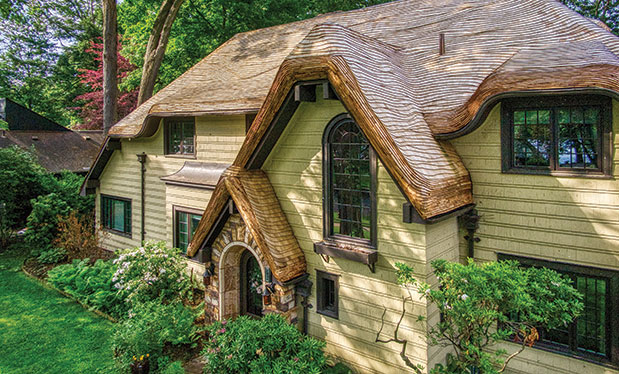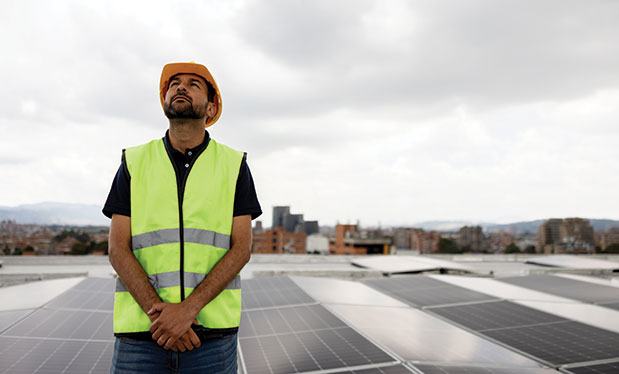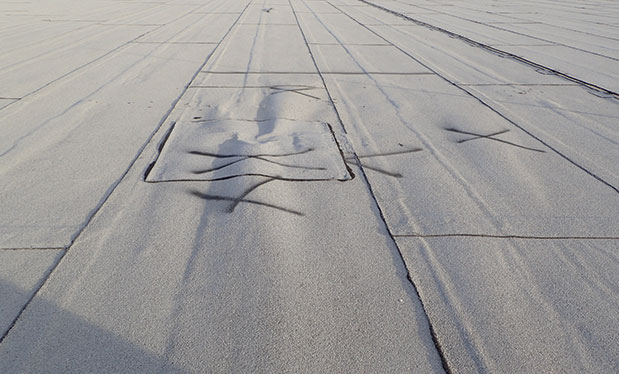
In the world of home improvement and construction, the relationship between contractors and homeowners is built on trust. Homeowners depend on contractors not just for technical expertise but also for guidance when making decisions that align closely with their personal priorities, such as the integrity of their homes, cost-efficiency and, increasingly, environmental impact. This relationship requires contractors to consider a holistic approach and keep immediate and long-term implications of home improvement projects in mind.
Recent trends indicate a shift in homeowner preferences, particularly among millennials, who tend to favor sustainable, energy-efficient solutions even if those come with added costs.
According to a survey conducted by Midea, a heat-pump HVAC manufacturer based in Louisville, Ky., 76% of millennial homeowners are actively seeking environmentally responsible options for their homes. Furthermore, an over-whelming 85% of millennial homeowners report a heightened focus on energy efficiency compared with five years ago, and 83% would be interested in discussing energy-efficient technological upgrades with contractors. This data underscores the growing environmental consciousness among younger homeowners and highlights their reliance on contractors to provide sustainable options that align with their goals.
Millennials now comprise a higher percentage of homeowners, and the market continues to tilt toward sustainability, so it is vital contractors stay informed and responsive to evolving homeowner preferences.
Contractors must bolster their service offerings to include the latest eco-friendly technologies and practices, ensuring they can effectively advise and implement solutions that meet the dual demands of efficiency and environmental stewardship. By doing so, contractors will cater to the current needs of homeowners and position themselves as forward-thinking leaders in the construction and renovation industries. Taking a proactive approach to adapting to what clients prefer will help earn trust, ensure lasting relationships and attract new business.
Air quality and shingles
To address these evolving environmental priorities, the construction industry, including residential roofing, has seen a shift toward integrating sustainable materials and methods into building projects. It is up to contractors to educate homeowners about the latest sustainable technologies available on the market.
There are eco-friendly roofing enhancements for shingles, and a new smog-reducing shingle just entered the market. The shingles integrate 3M™ Smog-Reducing Granules that actively contribute to air quality improvement. This not only helps to purify the air around the home, but it also contributes to wider community health benefits by reducing the level of atmospheric pollutants.
Other significant enhancements in shingle technology also deserve mention. For instance, reflective shingles are designed to deflect sunlight and heat away from buildings, helping to lower cooling costs and reduce the urban heat is land effect. Additionally, shingles made from recycled materials are becoming more popular, offering a sustainable option that helps reduce landfill waste.
For contractors, recommending the latest shingle technologies to homeowners addresses the growing demand for sustainable building materials and provides a tangible solution to rising air quality concerns. By educating clients about the benefits of sustainable shingles, contractors can play a pivotal role in promoting environmentally friendly living practices while delivering innovative products that enhance both the value and environmental footprint of homes.
Repair versus replace
For homes with low-slope roof systems, the traditional approach of a full tear-off and replacement often can be substituted with more sustainable, cost-effective methods. When appropriate, contractors can guide homeowners toward more sustainable practices by emphasizing the benefits of patching and repair work in place of complete roof system replacements.
According to International Code Council® regulations, roof system replacement typically requires the removal of all existing layers of roof coverings down to the roof deck. Although the regulation is intended to ensure new roof system installations have a solid foundation, many of these layers, especially in low-slope roof systems, may be in good condition and not necessarily need replacement. In such cases, opting for patch and repair work instead of a full tear-off is a more sustainable, cost-effective choice, conserving materials that would otherwise contribute to landfill waste.
Furthermore, applying specialized coatings can enhance roof system functionality and longevity of the roof. There are flashing-grade silicone roof sealants that can provide excellent adhesion, flexibility and durability, particularly in climates with significant precipitation. The application of sealants is less resource-intensive than a full roof system replacement and contributes to the sustainability of the building by enhancing energy efficiency and reducing waste.
By educating homeowners about alternatives to full roof system replacement, contractors can help homeowners make informed decisions that balance cost, performance and environmental impact.
Comfort and efficiency
When it comes to home insulation, spray polyurethane foam has emerged as the solution for achieving high-performance, energy-efficient homes. SPF insulation provides an energy-efficient solution that can reduce monthly heating and cooling costs, as well as improve indoor air quality and comfort by sealing off cracks to prevent outdoor pollutants and maintaining stable indoor temperatures to reduce unnecessary energy expenditure. Contractors recommending this advanced insulation technology are equipping homes with a modern approach that can substantially transform living spaces.
SPF insulation, true to its name, is applied by spraying a thin layer onto surfaces such as wall cavities, roof decks and floor joists where insulation is desired. The layer expands, adhering to the applied surface while filling cracks and voids. Traditional home insulation such as fiberglass, mineral wool batts or blown-in cellulose can sag or slump over time, reducing their energy efficiency, but SPF remains firmly in place, providing better long-term thermal performance. Moreover, it acts as an air barrier, effectively sealing cracks and gaps and preventing unintended air entry or escape through the exterior building envelope.
This assembly helps maintain consistent indoor temperatures year-round, reducing the need for constant heating or cooling, and improves indoor air quality by preventing outdoor pollutants and allergens from entering the home. The efficiency gained decreases the burden on the HVAC system, potentially allowing for the use of a smaller, more energy-efficient system, further lowering monthly energy costs and reducing future HVAC replacement costs.
With homebuilding regulations increasingly focusing on energy efficiency and long-term performance, SPF is a viable insulation choice for new construction and retrofitting projects. Its compliance with rigorous energy standards makes it a compelling choice for contractors and homeowners aiming to enhance the sustainability and future readiness of their properties.
Rainwater collection
Another effective strategy contractors can recommend to homeowners is the installation of rainwater collection systems. These systems are designed to capture rainwater from roofs, which can then be repurposed for watering gardens, landscaping or other outdoor uses. By implementing such collection systems, homeowners can reduce their reliance on municipal water supplies, which not only lowers utility bills but also conserves an everyday resource.
Rainwater collection systems are important in managing stormwater runoff—a growing concern in many urban areas. Capturing rainwater before it can run off into streets and storm drains can help mitigate the risk of flooding and prevent the overloading of sewer systems during heavy rains. Additionally, rainwater collection systems reduce the amount of pollutants carried into local waterways, contributing to healthier aquatic ecosystems. This simple yet effective method contributes positively to the environment while providing practical benefits for homeowners.
Maintenance
When it comes to sustainable home improvement, the role of contractors extends beyond installation and repair. A critical component of their service involves regular roof system inspections and preventive maintenance, not only for the longevity of the roof but also for the overall health and efficiency of the home. Contractors should emphasize to homeowners the value of conducting regular inspections so contractors can spot potential issues early on, such as missing or damaged shingles and blocked drainage systems, and address them before they escalate into more severe and costly problems.
The benefits of proactive roof system maintenance are significant. Routine checks and minor repairs can extend the life of a roof, avoiding the need for premature replacements. Well-maintained roof systems contribute to the overall structural integrity of the house and offer better protection against environmental elements, which can lead to substantial savings on potential water damage repairs and energy costs. This will not only help homes remain safe and secure but also will reduce waste and the need for new materials.
Contractors should work closely with homeowners to establish a customized inspection schedule that considers the specific needs of each roof based on factors like age, material and typical climate or regional conditions. A location in coastal regions or the risk factor of severe hail, for example, are conditions that require extra maintenance and more regular inspections.
A strong relationship
The emphasis on regular maintenance and personalized care plans by contractors ensures the durability and functionality of homes and promotes a broader commitment to sustainability. Through diligent inspections and maintenance, contractors help homeowners make informed, cost-effective and environmentally conscious decisions, reinforcing the trust and reliability that are the foundation of the homeowner-contractor relationship.
JAY SALDANA, P.E., is principal building scientist for Holcim Building Envelope, Nashville, Tenn.



